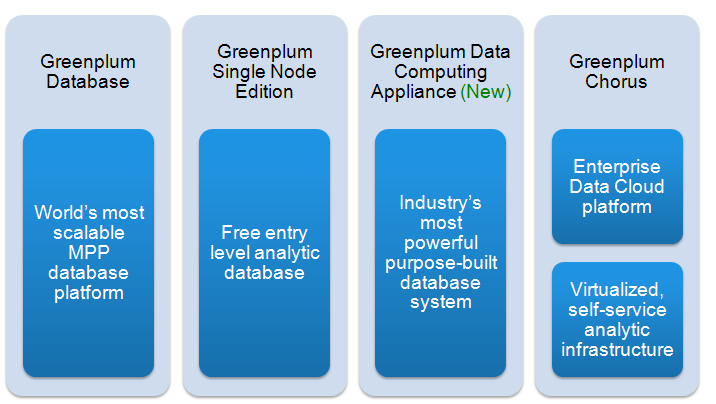EMC's launches Greenplum appliance

EMC on Wednesday will launch a Greenplum data warehousing appliance designed to take on the likes of IBM's Netezza, Oracle's Exadata and Teradata.
The launch comes 75 days after EMC acquired Greenplum. Scott Yara, former CEO of Greenplum and now vice president of products at EMC, said the EMC Greenplum Data Computing Appliance is akin to what Google did with Nexus One. EMC's general idea is to give the industry a reference architecture to run Greenplum's software.
Of course, EMC will happily sell you the Greenplum appliance too starting at $1 million. Here's a look at EMC's Greenplum lineup.
With the Greenplum appliance, EMC is making its splash into the integrated appliance market. As companies eye more analytics and data crunching, big technology vendors are entering the market. Yara said EMC is looking to differentiate itself in a few ways.
First, EMC is committed to selling Greenplum as a software-only option. EMC also said it will be more flexible than rivals in virtualized environments and customers can run Greenplum on any hardware.
EMC is also claiming to be more open than others. This claim is based on the fact that EMC's Greenplum appliance is based on industry standard server and networking parts and software that can run on any hardware. Yara noted that EMC's Greenplum appliance has Dell servers and hardware under the hood.
The company is also surrounding the Greenplum appliance with key technologies such as Data Domain, another outfit acquired by EMC, and other intellectual property.
A few key points:
- The EMC Greenplum appliance runs on Greenplum Database 4.0 and can load 10 terabytes an hour.
- Greenplum Database 4.0 will run on Vblock infrastructure packages from the Virtual Computing Environment coalition, which features EMC, Cisco and VMware among others.
- The EMC Greenplum appliance marks a move beyond storage for EMC so it's a notable shift.
- With all the consolidation around data warehousing lately, it was fair to ask Yara whether the industry is mature or not. Yara said data warehousing is really in "the second inning to be candid."
Given that state of affairs, EMC Greenplum will be pushing price for performance, a metric that all the data warehousing players are pushing. Oracle has its slides targeting IBM and Netezza as well as Teradata. Here's Greenplum's slide on architecture and specs. Take all of these slides with a grain of salt, but you do get to see what vendors EMC Greenplum is targeting.
Yara likened data warehousing appliances to virtualization a few years ago. The talk came well ahead of the implementations. "Customers are now demanding analytics," said Yara. "We're just starting to see what enterprises will do."
More data warehousing:
- eBay's Teradata implementation headed to 20 petabytes
- Cloudera, EMC Greenplum form data warehousing alliance
- EMC to acquire Greenplum for data warehousing, analytics
- Netezza rolls out appliance to sniff out data risks
- IBM scoops up Netezza for $1.7 billion, broadens data analytics lineup
- Oracle's Mark Hurd announces upgrade to Exadata
- Oracle's Exalogic box: Cloud washing at its best?
